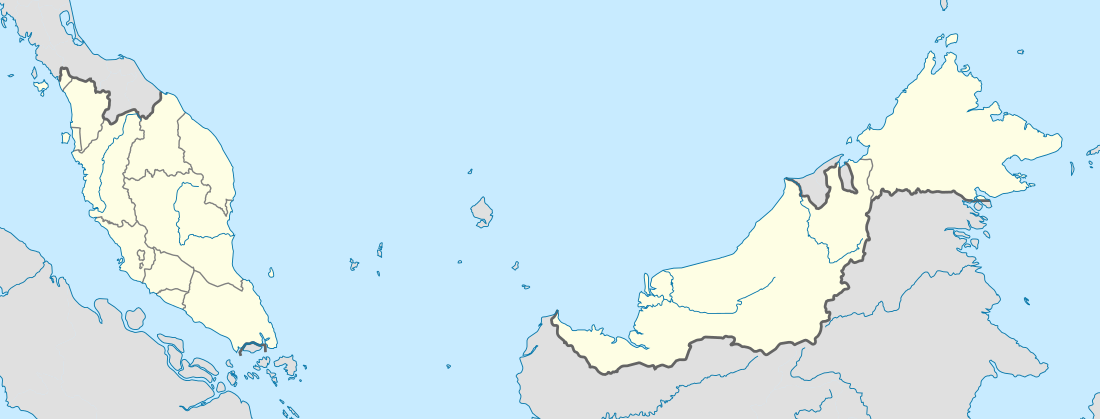Carey Island
| Native name: <span class="nickname" ">Pulau Carey ڤولاو كهري | |
|---|---|
|
The two-lane section of the South Klang Valley Expressway E26 in Carey Island, Malaysia. | |
 Carey Island Carey Island | |
| Geography | |
| Location | South China Sea |
| Coordinates | 2°52′N 101°22′E / 2.867°N 101.367°ECoordinates: 2°52′N 101°22′E / 2.867°N 101.367°E |
| Administration | |
|
Malaysia | |
| State | Selangor |
The Carey Island (Malay: Pulau Carey) is an island in Selangor, Malaysia. Carey Island is located to the south of Port Klang and north of Banting town. It is a huge island separated from the Selangor coast by the Langat River, connected by two bridges from Chodoi and Teluk Panglima Garang near Banting[1] and a bridge from Pulau Indah and Pulau Carey.
History
It was named after Edward Valentine John Carey, an Englishman planter in Malaya has acquired an island from the Sultan Sir Alaeddin Sulaiman Shah of Selangor to start rubber plantations and since then until now the island is known as Carey Island or Pulau Carey. Carey began a plantation industry under Jugra Land and Carey Ltd. Rubber was introduced to the Carey Island in 1905 and a permanent work force was established in 1907. Despite its name, many locals from Klang do not consider it a real island compared to Crab Island due to its proximity to the mainland and the river that separates it from the mainland is practically a stream.
Features
It is famous for its seafood such as crabs, prawns, and various fishes. The island has palm oil plantations owned by Sime Darby Plantations. It is an initial settlement area for the Mah-Meri (pronounced [max mri]), one of the aborigine Orang Asli tribes of Malaysia. They have assimilated into modern life, with jobs in the nearby plantations and farms, but they retain their unique culture and way of life. Apart from exhibitions of their traditional dances and music, the Mah Meri are particularly known for their votive sculptures, fashioned from a kind of swamp hardwood known as "Nyireh Batu".